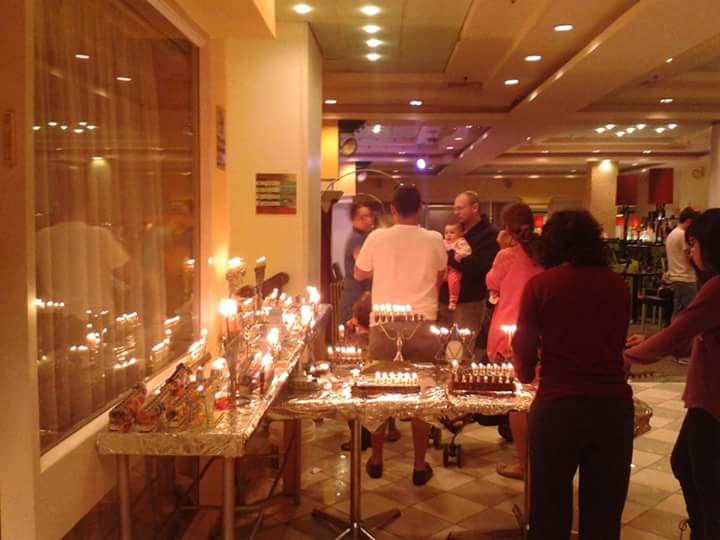Basia Monka – In the Manner of Speaking…
„Ma nishma?”
„Ma kore?”
„Ma matzav?”
„Ma hadash?”
…
The number of questions one can exchange, instead of a simple “hello”, in Israel is endless. “How are you?”, “ What’s up?”, “ What’s the situation?”, “What’s new?”… In my first years in Israel I called it a ping – pong talk or in Israel, I should, say the “matkot” talk – as the beach racket is the national sport here. No-one really wants to know how are you, is just passing the ball. In fact, they exchange those questions for few minutes and then the “hello” is done.
Recently I have spent some time out of Israel, and to my surprise I suddenly missed it. I thought about it in a supermarket, when a cashier didn’t ask me: ”Ma nishma?”… In Israel, at least people show each other some attention, I thought. Even if it is not deep and it’s just a manner of speaking, but at least some attention… So something I found very annoying at the beginning here, suddenly grew up to be a value.
In fact, there is so much in the manner of speaking worth attention, here. Once, my friend from Austria has noticed that kids in Israel are very confident, because they have so much verbal support from their mothers. Israeli mothers, and please, don’t mix them with the “Yiddishe Mame” or “ Ima Polaniya” (the Polish mother, as they say in Israel) raise their children with absolute belief in them. From the early age till forever, they address them: “hamud sheli” (my sweet), “chaim sheli” (my life). They tell them that they are smart, that they can do anything. And those words many times repeated, the positive reinforcement, really gives effects. They give the strength.
As I have heard from an Israeli man today, if you think you are a prince, you can do anything. And that’s one of the keys to successes of the Israeli entrepreneurs. They believe they can do anything. So they try.
The other thing is the attitude to the failures. I often hear in Israel, that you are allowed to make mistakes. If you fall, don’t be ashamed of it. Just get up and go on. Take another chance. You start one job, you don’t like it, change it or start up your own business. Just don’t give up. Don’t stop trying. “Iye beseder” – it will be fine.
One more thing that I am learning from Sabras (born in the land Israel) is the positive answers. If you don’t want to spend five minutes on exchanging greetings just answer the question ‘how are you with “metzuyan” (fantastic) or “dvash” (honey). And smile.
After all, you are in the Land of honey and milk… Where soon, after the dark, there will be lots of Chanukah lights, people will eat “sufganiyot” (doughnuts) or “latkes” / “levivot” for eight days and the four letters on your “dreydle” (in Israel called a “sevivon”) the spinning Chanukah toy, will say: “Nes Gadol Haya Po” (a great miracle has happened here). And it this case it’s not just a manner of speaking, in every other place in the world it will say “Sham” (there). So if you believe in miracles and the Chanukah story, this miracle has happened here.
Whether the mothers of Maccabees also gave strength by calling them “chaim sheli”. That, we will never know.
But speaking of the power of words. Last but not least, what fascinating phenomena, an irony, that Chanukah is the most known Jewish Holiday and no one in the Western world questions it, but the city where it has happened is still the matter of a question or a denial… But maybe, in this case, this is really just a manner of speaking?
Basia Monka
Tel Aviv, 12/12/2017









